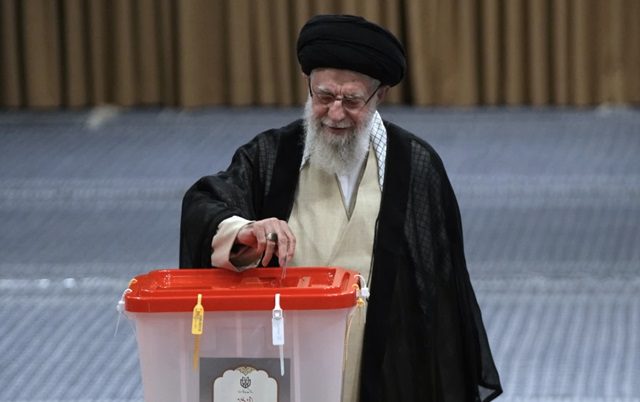BTN News: On Friday, Iranians started voting again to choose a new president. The former president, Ebrahim Raisi, died in a helicopter crash last month. This vote comes at a time when many people in Iran feel let down because of money problems, big protests, and troubles in the Middle East.
Two Candidates: A Tough Negotiator and a Heart Doctor with Political Experience
The second round is between Saeed Jalili, a strict former nuclear negotiator, and Masoud Pezeshkian, a heart doctor and long-time member of parliament. He works with moderate and reformist politicians. Neither candidate got more than 50% of the vote in the first election on June 28, so another vote is needed. The first election had the lowest number of voters in Iran’s history. This has caused worries about how many people will vote on Friday.
Calls to Boycott the Election and How People Feel About Voting
Nobel Peace Prize winner Narges Mohammadi asked people to boycott the election from her prison cell. But many voters had already decided not to vote last week. There is no strong opposition group in or outside Iran. State TV showed short lines at polling stations across the country after voting started. Since the 1979 Islamic Revolution, women and those wanting big changes cannot vote. Also, no international observers are watching the vote.
Middle East Tensions and What’s Happening During the Election
The vote is happening while tensions are high in the Middle East. This is partly because of the conflict between Israel and Hamas in Gaza. In April, Iran made its first direct attack on Israel. Groups supported by Iran, like Lebanon’s Hezbollah and Yemen’s Houthis, have stepped up their actions.
The Supreme Leader’s Role and Early Voting
Iran’s Supreme Leader, Ayatollah Ali Khamenei, 85, makes the final decisions on all state matters. But the president can influence whether the country negotiates or fights with the West. Khamenei was one of the first to vote, doing so in front of cameras at his home.
“I have heard that people are more excited to vote this time,” he said. “God willing, people will vote and pick the best candidate.”
This election is a key moment for Iran as it deals with internal problems and outside pressures.


